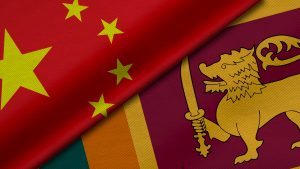Sri Lanka’s president said Thursday his government has started debt restructuring discussions with China, an important step toward finalizing an International Monetary Fund rescue of the island nation from a severe economic crisis.
President Ranil Wickremesinghe told Parliament on Thursday that initial talks will continue after China’s Communist Party congress, which begins October 16.
Wickremesinghe, who recently returned from a trip to Tokyo, said the Japanese government had agreed to mediate the talks with China.
“China has been supporting us from ancient times and we believe they will do the same in these difficult times,” Wickremesinghe said.
Sri Lanka is nearly bankrupt and has suspended repaying its $51 billion foreign debt, of which it must repay $28 billion by 2027.
Sri Lanka has reached a preliminary agreement with the IMF for a $2.9 billion rescue package over four years. Its completion hinges on assurances from Sri Lanka’s creditors on debt restructuring. Separately on Thursday, Nandalal Weerasinghe, the governor of Sri Lanka’s Central Bank, told reporters that steps have been taken towards debt restructuring.
Sri Lanka has made a presentation to global creditors and held meetings with financial advisors, donor countries and commercial creditors.
The discussions were “going forward,” Weerasinghe said. But he declined to discuss the progress of the discussions, saying he prefers to maintain “a radio silence” to avoid affecting markets. An announcement will be made once an agreement is reached, he said.
Sri Lanka borrowed heavily from China over the past decade for infrastructure projects that include a seaport, an airport and a city being built on reclaimed land. The projects failed to earn enough revenue to pay for the loans, a factor in Sri Lanka’s economic woes.
China is not Sri Lanka’s biggest creditor. It accounts for about 10 percent of Sri Lanka’s loans after Japan and the Asian Development Bank. However, Beijing’s assent to restructuring its loans is crucial. It has not committed to any restructuring, though it offered an additional loan.
Meanwhile, on Thursday, Sri Lanka’s Central Bank announced that the country’s economy is estimated to have contracted by 4.8 percent in the first half of 2022.
It also said the economy is expected to contract in the second half of 2022 as well due to tighter monetary and fiscal conditions, widespread shortages of various necessities including fuel, food and medicines, and uncertainties for businesses given the lack of accessible financing and foreign exchange.

































